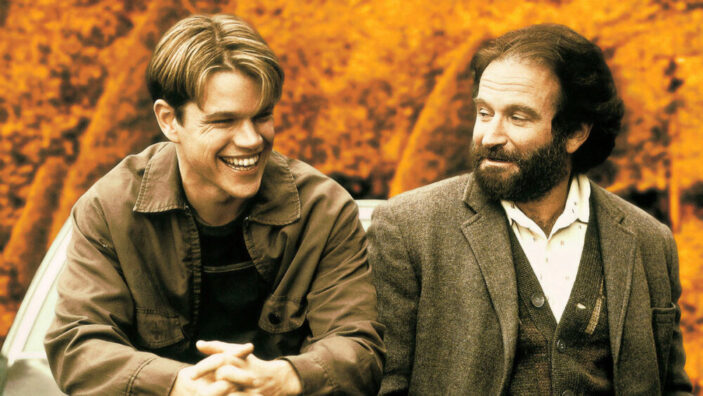
Self-education is among the most important abilities anybody can acquire in the fast-paced world of today when information is power. Though degrees and conventional classrooms have their place, many of the most important teachings in life come from unlikely places. For example, pop culture can be a startling but effective instructor. Characters in movies and TV series who reach brilliance generally display grit, curiosity, and the ability of self-learning as means of achieving excellence. Let’s explore some famous instances and the insights they provide for empowering your own learning.
Overcoming Adversity Through Self-Learning (Good Will Hunting)
Who can forget the conflicted but brilliant Good Will Hunting janitor Will Hunting? Even the most experienced teachers would find difficult mathematics problems solved by him, although lacking official education. Will’s narrative is evidence of the force of unvarnished inquiry and self-study.
Will reminds us that our potential is not defined by conventional boundaries—personal, social, or financial ones. The readiness to delve into books, challenge the world, and pursue knowledge on your own initiative counts most. His development also emphasizes the need of having mentors who support him in navigating his talent—like therapist Sean Maguire and Professor Lambeau.
The Power of Non-Traditional Learning Paths
The path taken by Will begs a fundamental issue: Is formal schooling the only way to succeed? His self-taught brilliance questions the conventional wisdom that holds credentials need for brilliance. Rather, his narrative demonstrates how tenacity and love could open doors. This lesson is priceless for everyone engaged in self-education; let curiosity guide and never hesitate to shape your own route.

Teamwork and Shared Learning (The Breakfast Club)
The Breakfast Club demonstrates the power of teamwork and shared learning by showing how individuals from different backgrounds can collaborate to grow and understand each other better. The characters, initially isolated by stereotypes, learn to communicate openly and appreciate one another’s perspectives. This dynamic highlights the value of collective problem-solving and creative thinking, especially when tackling challenges that require unique approaches.
For students, this concept can be applied by seeking online help when working on group projects or personal assignments. When tasked to do my essay collaboratively or independently, utilizing tools and resources can enhance the learning experience. Platforms that provide assistance in structuring academic papers can serve as valuable aids, encouraging better writing and analysis skills. Embracing shared learning fosters not only academic growth but also the ability to adapt and thrive in diverse environments, which is a crucial life skill for both personal and professional success.
Building Empathy as a Learning Tool
The Breakfast Club teaches us among other things the value of empathy in self-education. Hearing others’ stories helps us to widen our perspectives and question received wisdom. Learning is about knowing human experiences and using that insight in our own life, not about textbooks.

The Journey of Trial and Error (The Queen’s Gambit)
The way Beth Harmon rose to chess renown in The Queen’s Gambit is a great illustration of how trial and error define mastery. Beth earns her success by hours of practice, study of chess tactics, and learning from her mistakes; it is not handed to her. Her narrative reminds us that learning on our own is seldom a straight path.
Though they are unavoidable, mistakes are also great teachings. Every loss Beth goes through sharpens her abilities and feeds her will. Any ability or topic you wish to become proficient in will benefit from this lesson; be ready to make mistakes since those times of failure sometimes result in the biggest discoveries.
Curiosity as a Driving Force (Sherlock Holmes)
The great investigator Sherlock Holmes excels in observation, deduction, and lifelong learning. Whether in the original tales of Arthur Conan Doyle or contemporary interpretations like Sherlock, his natural curiosity is his best advantage.
Anyone engaged in self-learning can find a road map in Sherlock’s method. He probes everything, tests his ideas, and makes links others would ignore. His narrative reminds us that learning is about creatively using information to solve problems, not just knowing facts.
Like Sherlock, inquiring people never settle with surface-level knowledge and remain receptive to fresh information. There are riddles all around us; all you need is the will to probe, “Why?”

Resilience and Lifelong Learning (The Pursuit of Happyness)
The path Chris Gardner travels on The Pursuit of Happyness is one of self-education, tenacity, and will. Chris keeps on in face of financial difficulties and homelessness. Rather, he takes advantage of every chance to grow—from learning stockbroking to negotiating life’s obstacles.
His narrative emphasizes that self-education is about using every tool at your disposal and adjusting to situations, not only about learning facts. Chris’s unrelenting quest of personal improvement reminds us that learning never stops. Whether your starting point is here or elsewhere, tenacity and ingenuity can propel success.
Conclusion
TV shows and movies are windows into tales that inspire and educate us, not only entertainment value. From Beth Harmon’s methodical search of mastery to Will Hunting’s natural genius, these people demonstrate the power of self-education. The teachings are universal regardless of whether one learns from mistakes, welcomes inquiry, or develops empathy.
Why then not learn from their stories? Today begin your own path of self-discovery. Read that book, view that tutorial, or schedule the long-neglected meaningful talk. The most crucial lessons, after all, are frequently the ones we learn from others.
